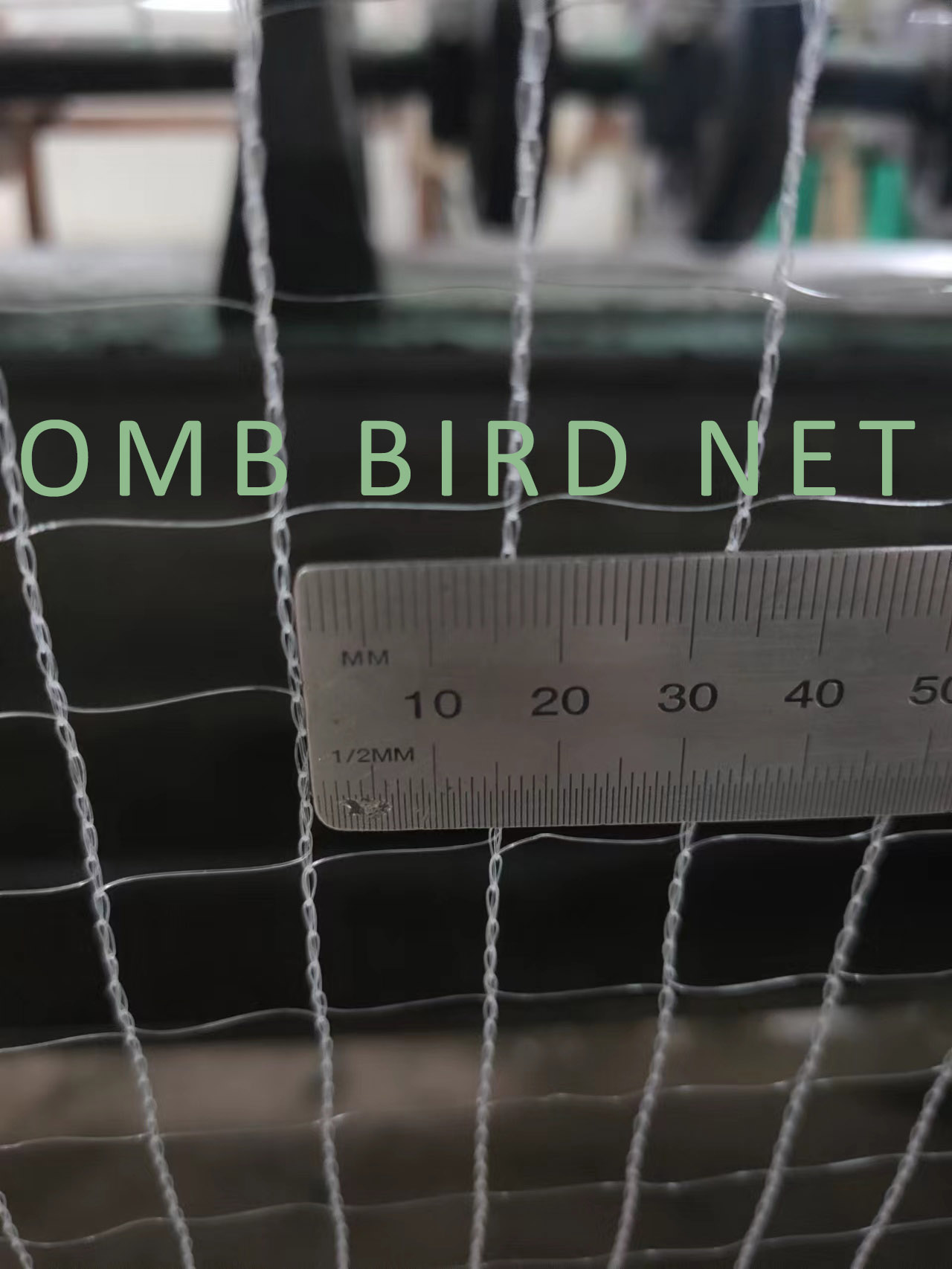
Birds play a vital role in maintaining the fragile balance of ecosystems. However, in some cases, their presence can pose challenges, especially when it comes to farming and protecting our precious crops. Therefore, it is crucial to take effective measures such as bird netting. In this blog we explore the importance and benefits of bird netting and look at how it can help us strike a balance between protecting natural habitats and ensuring agricultural development.
1. Define the problem:
Birds, although beautiful creatures, can also cause extensive damage to crops, causing significant financial losses to farmers and hampering food production. From pecking at fruit to destroying the stems of cereal crops, the effects of bird damage are far-reaching. This problem requires a solution that is both efficient and environmentally friendly – protecting both our crops and bird populations, which are essential for thriving ecosystems.
2. The uses and characteristics of anti-bird nets:
Bird netting has become one of the most effective ways to prevent birds from causing damage to crops. This method involves strategically placing specially designed netting in agricultural areas to create a physical barrier. These nets are made of durable yet lightweight material that resists tearing, ensuring their longevity. The fine mesh design acts as a strong barrier to birds, preventing them from reaching crops and causing damage.
3. Protect the ecosystem:
Although the focus is on crop protection, bird netting is designed to ensure the long-term survival of bird populations. By using smart net technology, birds can be stopped from targeting crops without causing any harm to them. Netting enables birds to adapt to new feeding patterns, thereby reducing overall reliance on crops as a food source, thus promoting the conservation of biodiversity and natural habitats.
4. Ecological and economic benefits:
Implementing bird netting can bring many ecological and economic benefits. From an ecological perspective, it protects natural resources by reducing the need for chemical pesticides and deterrents. Netting also prevents birds from spreading invasive plants through their droppings, further protecting natural ecosystems. Economically speaking, anti-bird netting can increase crop yields and minimize farmers' economic losses. The investment in installing a netting system is far more economical than the potential damage caused by birds to unprotected crops.
5. Sustainable Agriculture:
Bird netting plays a vital role in advancing sustainable agricultural practices. By minimizing bird-related crop damage, farmers can achieve consistent yields, which contributes to food security and stability. Additionally, due to the effectiveness of the netting, reliance on chemical pesticides is reduced and negative impacts on soil health and water quality are significantly reduced. This integration of fishing nets as a proactive measure is consistent with the principles of sustainable agriculture to ensure we can meet the needs of a growing global population while protecting our natural resources.
6. Psychological benefits to farmers:
In addition to ecological and economic advantages, bird netting also provides psychological benefits to farmers. Bird damage to crops can lead to low morale, leading to stress and dissatisfaction in farming communities. By securing their investment with a reliable netting system, farmers can have peace of mind knowing that their efforts are protected and that they are contributing to the balance between nature and livelihoods.
In summary:
As we strive to live in harmony with nature, strategies to address potential conflicts between wildlife and agriculture must be adopted. Bird netting emerges as a win-win solution, protecting both our valuable crops and the bird species that contribute to the delicate balance of our ecosystems. By taking this considered approach, we can support sustainable agriculture, enhance biodiversity and secure our future food supply. Let’s use bird netting as a key tool in protecting natural habitats, ensuring humans and birds can thrive together.


 英语
英语 西班牙语
西班牙语













